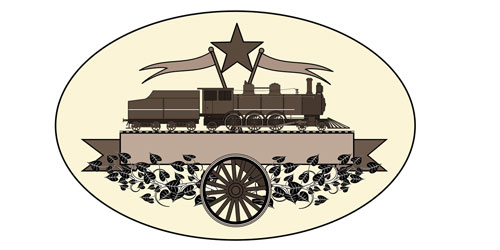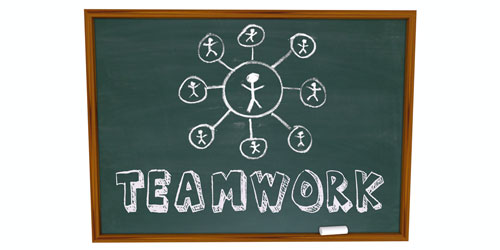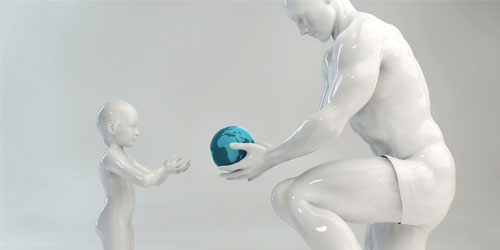《论语诠解英文版》——Chapter X"乡党" (Xiangdang)
[10- 1] 孔子千乡党 , 侚侚如也, 似不能言者。其在宗庙朝廷 , 便便言,唯谨尔。
10.1 When in his hometown, the Master appeared courteous and sincere, as if he were unable to speak in public. When in the ancestral temple or the court, he spoke eloquently but with caution.
[Comment] "乡党xia ng dang" means "hometown," while " 侚侚 xun xun" connotes that one is "polite, gentle, courteous." 寸更{更b ia n bian" is used interchangeably with "辛梓 bia n" to mean "eloquent."
[Reading] The following five sections including this one (10.1 - 10.5) focus on the refined way in which Confucius interacted with people of dif ferent social strata from rustic farmers to royal princes. In accordance with the rites of propriety, he would conduct himself in a consistent manner proper for social interaction across a range of situations to curtail behavioral impiety. By conscientiously practicing virtuous behaviors, he has provided a sound model of moral education. When in his hometown, Confucius would appear courteous and sincere, as if he were unable to speak in public. Gath ering in the ancestral temple or the court, he would speak eloquently and with caution. While waiting at the court for an audience with the prince, he would be very respectful and awe-inspired, but with a serene demeanor.
[10- 2] 朝, 与下大夫言, 侃侃如也; 与上大夫言,阎阎 如也。君在, 跟腊如也,与与如也。
10.2 When waiting at the court and talking to great officers of middle-rank, the Master was gentle and delighted. When speaking with great officers of high-rank, he was genuine and respectful. When the prince was present, he was reverential and awe-inspired, but with a serene demeanor.
[Com ment] "阎阎如也 yf n yf n ru ye" translates as "to be genuine, yet re spectful." "婌腊如也 c u jf ru ye" connotes "reverential, yet with unease."
[10- 3] 君召使挨 ,色勃如也,足踢如也。揖所与立,左 右手,衣前后, 檐如也。趋进,翼如也。宾退,必复命曰: "宾不顾矣。"
10.3 When the prince summoned the Master to be in charge of the reception of guests, the Master would look very sincere and would walk nimbly. He would bow with his hands folded in front to greet the guests on the left and right. The skirts of his robe fluttered but in an orderly manner. He moved forwarded swiftly, like a bird with wings. When the guests left, he would report to the prince, "The guests have gone, not turning around anymore."
[Comment] "挨 bln" is used interchangeably with 汁宾bln" to mean "the person who receives guests" and " 勃 b6" connotes "to change one's fa- cial expression." "蠼 jue" implies "swift movement" but in this context, it implies "quicken one's footsteps." '檐如 c ha n ru" translates as "neatly dressed up."
[10- 4] 入公门, 鞠躬如也, 如不容。立不中门,行不履阀。
过位,色勃如也,足踢如也,其言似不足者。
摄齐升堂,鞠躬如也,屏气似不息者。 出,降 一等, 逞颜色, 怡怡如也。
没阶,趋进,翼如也。复其位,婌腊如也。
10.4 When the Master entered through the palace gate, he was extremely deferential, as if there were not enough space for him. Standing, he did not position himself in the middle of the gateway, nor did he step on the threshold. When he passed the seat of the Duke of Lu, he would assume a grave rever ential countenance and walked by quickly, as if he were unable to speak. When ascending the reception hall, he would lift up his robe deferentially and held his breath as if he were unable to breathe. After the audience, as he was descending the steps, he was relaxed and looked pleasant and easy. When he reached the last step, he would walk swiftly, like a bird with wings, to his place. He would still appear respectful yet uneasy.
[Comment] "公门 go ng m的 " translatesas "court door, palace gate." There have been two different interpretations of "鞠躬 ju gong." One view holds that it describes "the bending of one's body," while the other argues that it is used homophonically to convey that one is "respectful yet cautious." We opted for the second interpretation as it makes more sense in the context of this passage. "闾 yu" means "threshold," while "过位 g uo 吨 " c onnotes "pass the seat for the Duke of Lu." " 摄s h扩 means "to lift up" and "齐 21" refers to "the lower part of clothes." "出c h O" connotes "lower down by a level," while "等 de ng" means "steps."
[10- 5] 执圭, 鞠躬如也, 如不胜。上如揖,下 如 授。勃如战色, 足蹄蹄如有循。
享礼,有容色。 私规,愉愉如也。
10.5 When he was dispatched as an envoy to a neighboring state, he would hold a jade scepter in an extremely deferential manner, as if he were not able to carry its weight. When he lifted it up, he appeared bowing with his hands folded in front; when he lowered it down, he appeared as if he was offering a gift. All this time he carried a grave countenance: he was both serious and sincere, walking in a shambling gait, as if moving along a straight line on the ground. His countenance was decent during the presentation ceremony. In private meetings, he looked relaxed and pleasant.
[Comment] "圭 g uT'' i s the name of a kind of jade, which was used as a to ken of commission by an envoy. "蹄蹄如 有循 SU SU ru you xun" translates as "to walk in short sliding steps barely lifting the feet, as if moving along a straight line on the ground." "享礼 xia ng IT" refers to a kind of ceremony during which an envoy presented gifts to the prince of a state. "有容色yo u r6ng se" suggests that "during a presentation ceremony one carries a decent countenance on his face." "私规 sT df" connotes "meet with someone privately."
[10- 6] 君子不以组缆饰, 红紫不以为亵服。当暑,诊烯给,必表而出之。
细衣,恙裘;素衣,晓裘;黄衣,狐裘。亵裘长,短右快。
必有寝衣, 长一身有半。狐貉之厚以居。
去丧,无所不佩。非帷裳,必杀之。恙裘玄冠不以吊。吉月,必朝服而朝。
10.6 The Master would not use the cloth of green and red as cuffs, nor would he use the cloth of purple for his house clothes. In the hot summer he would wear a simple garment made either of coarse or fine texture. Hot though it was, he would always wear a shirt underneath before he went out. In the cold winter he would wear a black robe with a black sheepskin man tle, or a white robe with a fawn skin mantle, or a yellow robe with a fox fur mantle. His residence robe was long, but its right sleeve was short for the sake of convemence. He would wear a sleeping garment that was one and a half times the length of his upper body. The warm thick fox fur was used for cushion. When not in a mourning period, he would wear various appendages of the girdle on his clothes. Except for ceremonial clothes which were made of one single piece of cloth, he would have the length of his garments adjusted with careful cutting and stitching. He would never wear lamb's fur nor a black cap on occasions of condolence. On the first day of the month he would dress up formally in his court robe to present himself for an audience at court.
[Comment] There are two different interpretations over " 君子 jun zT" in this context. The first refers to people who shared something in com mon with Confucius, while the second only indicates Confucius himself.
" 纣 怍 取 g a n zou" refers to "the colors of green and red," while " 饰 s h1" means "cuffs." "必表而出之 b1 biao er chu zhT" translates as "wear- ing a shirt underneath a garment. " 细 21" is the color "black" and " 素 s u" connotes " white." ' 瘾 n f" means "fawn," while " 去 q u" means "to take off." " 佩 p剖" connotes "wearing appendages of girdle on a belt sash." " 吉月 jf yu 扩 is"正月 zhe ng yue"(the first month in the lunar calendar)." 朝ch6o" means "to go for an audience at court."
[Reading] The following four sections (10.6 - 10.9) record the way Con fucius conducted himself in everyday life, with particular reference to his clothing style, eating habits and communicative skills. To Confucius, it was imperative that the rites of propriety be observed strictly and consistently both in social and personal spheres. Not only should one conduct himself in a manner proper for social occasions, but he should also dress appropriately for those occasions to show respect and sincerity. Thus, he paid meticulous attention, almost to the point of being pedantic, to such occasions. He was concerned with all details of the dress code, including the color of cloth and the various clothing styles for different occasions—house clothes, sleeping garments, robes for wearing in public space, sheep and fox skin mantles. His attention to detail even included a concern for the type of cap appropriate for a visit of condolence. As for food, Confucius made it known that eight foods are not healthy and therefore he would not eat them. He did all this in the spirit of the rites of propriety, which he believed to be a manifestation of his consistent efforts to be in accordance with the Zhou proprieties on a personal level.
[10- 7] 齐, 必有明衣, 布。齐必变食, 居必迁坐。
10.7 Before fasting, one must put on clean bath clothes made of linen cloth while taking a bath. During fasting, one must change his regular diet and move out so as not to live together with wife and concubine.
[Comment] We interpret " 齐 zha i" as "斋 zha i" (fasting). "明衣 ming yT" means "clean clothes a man put on him after showering," while " 布 bu" refers to the ceremonial clothing which is made of " 布 bu" (linen cloth). " 变 食bian sh[" refers to a diet which is changed for the purpose of fasting." " 迁 坐 qia n zuo" means "moving from the inner chamber to rooms outside so as not to sleep together with wife and concubines."
[10- 8] 食不厌精, 脸不厌细。
食储而揭,鱼俀而肉败,不食。色恶,不食。臭恶,不食。失任, 不食。不时,不食。割不正,不食。不得其酱,不食。
肉虽多,不使胜食气。惟酒无量,不及乱。 沽酒市脯不食。
不撤姜食,不多食。
10.8 When eating, the Master was not particular about refined rice, nor did he care about finely minced meat. He would not eat food which was kept for too long and was therefore ran cid. He would not eat fish and meat which had spoiled, nor food which was discolored and had a bad smell, nor food which was not properly cooked and which was out of season. He would not eat meat which was wrongly cut and which was not kept properly in a marinade. Even when there was a lot of meat, he would not eat a larger quantity of it than that of the main dish. However, he would not limit his consumption of wine, but he would not overdrink and always stayed sober. He would never consume the wine and dried meat bought from the market place. Food with ginger was always made available, although he did not eat much ofit.
[Com ment] 请登 yl" indicates "food that has been kept for too long," while "揭ai" connotes "food which has turned bad." '才妥 n色i" is used interchangeably with " 败 ba i" to mean "bad food." There have been two different interpreta tions of the phrase " 不 时 bu shf." One view holds that it refers to food that is not in season, but the other argues that it implies "not time to eat." " 割 不正 ge bu zh 的 g" means "wrongly cut meat." " 食 气 s h f xl" is used inter- changeably with 节气 xl" to mean the "main dish." "乱 l ua n" implies "intoxi cated and out of control, under the influence of alcohol." "沽酒市脯 9 o jiu shl fu" refers to "wine and meat bought from the market."
[Reading] Traditionally," 食不厌精, 脸不厌细s hf bu yon jTng, kuai bu yon x1" was interpreted to mean "When eating, the Master could not be too particular about refined rice. Likewise, he could not care too much about finely minced meat." However, given the fact that Confucius advocated, elsewhere throughout the Analects, that: "The noble man of true virtue does not seek to gratify his appetite, nor does he indulge himself in comfortable dwelling. Rather, he is diligent in what he is doing and cautious in his speech" (Section 14, Chapter I), "An accomplished scholar sets his mind on truth. But if he feels ashamed of poor clothes and simple food, he is not a worthy man with whom to discuss truth" (Section 9, Chapter IV), "Though I eat crude rice, drink cold water, and sleep on my arm for a pillow, I am happy" (Section 16, Chapter VII) and "The noble man pursues truth rather than clothing and food" (Section 32, Chapter XV), it should be obvious that Confucius focused more on virtuous and moral education than on self-indulgence in refined clothing and delicious food. To reach the conclusion that "When eating, the Master could not be too par ticular about refined rice. Likewise, he could not care too much about finely minced meat" for "食不厌精, 脸不厌细s hf bu yon jTng, kuoi bu yon xl" only made Confucius a man of self-contradiction. That the statement of " 食不厌精, 脸不厌细s h f bu yon jTng, kuoi bu yon xl" gives rise to seemingly contradictory interpretations is due to the fact that the character " 厌 yo n" had two different meanings in the Pre-Qin peri od. One meant "to dislike, to be fed up with, to abandon," whereas the other connoted "to be satisfactory, to be glutted, to fill to satiety." We believe the character "厌" in the statement of "食不厌 精, 脸不厌细s h f bu yon jTng, kuoi bu yon xl" refers to the latter. [See the journal article《“食不厌精, 脸不厌细“正沽》by 王功龙 (Wang Gonglong) in《孔子研究》 Study of Confucius, No. 1, 2000]
[10- 9] 祭千公,不 宿肉。祭肉不出三日。出三日,不 食之矣。
10.9 When he assisted the Duke of Lu with his grand sacrifice, the meat he received he would not keep overnight. The sacrificial meat in his home he would not keep for over three days. If the meat was kept for more than three days, he would not eat it.
[10- 10] 食不语, 寝不言。
10.10 When eating, he would not chat with others. When in bed, he not talk to himself.
[Reading] Fully committed to self-development, Confucius repeatedly em phasized the importance of due observance of the rites of propriety, which in his view made up for each individual their system of moral disposition by means of which one's social duties and his individual character are meaning fully connected. To do so, it is imperative that one should reverentially and diligently order his conduct by meticulously observing propriety. The fol lowing sections (10. 10 - 10.15) describe how Confucius'everyday conduct and behavior embodied his understanding of the importance of the rules of propriety as a significant way of cultivating virtues proper to humanity not only on a personal level, but more importantly as a sound model of moral education for his students.
[10- 11] 虽疏食菜羹, 瓜祭, 必齐如也。
10.11 Although he offered simple foods in sacrifice, like coarse rice, vegeta ble soup, and melons, he did so in a sincere and deferential manner as if in fasting.
[10- 12] 席不正, 不坐。
10.12 If a mat was not set in accordance with the rites of propriety, he would not sit on it.
[10- 13] 乡人饮酒, 杖者出, 斯出矣。
10.13 During the wine ceremony in his hometown, he would not leave until the elderly were gone.
[Comment] "杖者出zha ng zhe chu" translates as "the elderly leaving early."
[10- 14] 乡人傩, 朝服而立千阵阶。
10.14 When the townsfolk were conducting the cleansing ritual to drive away evil spirits, he would dress up in his court robe and stood on the steps on the eastern side.
[Comment] "傩nu6 " refers to an ancient form of the rituals for cleansing evil spirits. "阵阶zuo jie" connotes "steps on the eastern side." In ancient times, hosts usually sat on the eastern side, whereas guests were situated on the western side.
[10- 15] 问人千他邦, 再拜而送之。
10.15 When he asked someone to send greetings to his friends in another state, he would bow twice to the messenger as he was seeing him off.
[Com ment] " 他邦 ta bang" indicates "another state."
[10- 16] 康子馈药, 拜而受之。 曰: "丘未达,不敢尝。"
10.16 Ji Kangzi sent the Master, as a present, some medicine for his illness. The Master bowed his thanks, but said, "I do not know about this medicine, therefore I dare not take it."
[Com ment] " 康子 ka ng zT" refers to "季康子 jl kang zT," who was a prime minister in the State of Lu. " 馈 kul" means "to present a gift," while " 未 达wei d6" implies "not yet knowing the effect of a medicine." " 尝 c h6 ng" means "to eat."
[Reading] These remarks show that Confucius was a cautious person. What ever he did not know he would first study before deciding how to approach it. He believed that merely to be courageous without wisdom is nothing but stupidity. For example, Zilu asked him whom he would select as an assist ant if he needed to handle military activities. Confucius said, "I would not select those who like to fight tigers barehanded or cross rivers without a boat or even die with no regrets. He whom I select should be able to handle mis sions with caution and plan carefully before launching an initiative."(Section 11, Chapter VII)
[10- 17] 脱焚。子退朝, 曰: "伤人乎?”不问马。
10.17 When the Master returned from court and learned that the family stable was burned down, he did not inquire about the horses first. Instead he asked, "Was anyone hurt?"
[Comment] ' 概 jiu" means "stable" but here, it refers specifically to the stable in Confucius' house. " 退 朝 t ul ch6o" means "to return from court."
[Reading] When Confucius learned that his family stable had burned down, he immediately asked if anyone was hurt rather than first inquiring about the horses. This shows clearly that he cared about the well-being of people-in eluding family servants-more than property and wealth. Concern for human beings occupies a central position in Confucian thought, which is by nature an all-embracing humanism that focuses on the improvement of humans, community, and ultimately, society.
[10- 18] 君赐食, 必正席先尝之。君赐腥, 必熟而荐之。君赐生, 必畜之。侍食千君,君祭,先饭。
10.18 When the prince sent him a gift of cooked food, he would always set a mat properly and tasted the food first. When the prince sent him a gift of uncooked fish and meat, he would always cook and then offer them as a sacrifice to his ancestors. When the prince sent him a gift of a live animal, he would always rear it. When he attended at a meal for the prince, he would always first taste food for the prince after he had done the sacrifice.
[Comment] "食 s hf" means "cooked food," while "正席 zh却 g xf" connotes
“布席 b u xf" to mean "set a mat properly." "腥 xTng" refers to "uncooked fish or meat" and " 荐 之 jia n zhT''means "to offer sacrifice to ancestors."
“生 s he ng" connotes "live animals," while " 侍食 s h] shf" means "attend at a meal for the prince." "君祭 jun jl" refers to "a sacrifice the prince would offer before a meal." "先饭 xia n fan" means "ministers tasting food for the prmce.
[Reading] The following sections, including this one (10.18 - 10.20), dem onstrate how sincere and dutiful Confucius was in attending to all aspects of the rites of propriety, particularly in regard to serving his prince. He would always honorably observe proprieties by, for example, tasting food for the prince to show his respect when he attended a meal with him. "When serv ing his prince," he admonished, "one should be willing to sacrifice his life for him." (Section 7, Chapter I)
[10- 19] 疾, 君视之,东 首,加 朝服, 拖绅。
10.19 When he was ill, the prince came to visit him. He would lie down facing the east, with his court robe spread over him and a girdle round his waist. He would try his best to show his reverence for the prince by atten tively observing the rules of propriety.
[Reading] Even when he was ill and had to remain in bed, Confucius would reverentially observe the rules of propriety for the prince when he came to visit him. He would cover himself with his court robe and try to lie down with his face towards the east, an auspicious direction for a prince.
[10- 20] 君命召, 不俟驾行矣。
10.20 When the prince summoned him, he would go immediately, without waiting for his carriage to be yoked.
[10- 21] 入太庙, 每事问。
10.21 When he went the grand ancestral temple, he would ask about things he did not understand.
[Reading] Confucius believed it is virtuous to learn and even more virtuous to be not ashamed to learn from one's inferiors. For example, when Zigong, one of his disciples, asked him why Kong Wenzi was awarded the posthu mous title of Wen, Confucius said, "He was intelligent and loved to learn. He was never ashamed to learn from his inferiors! That is why he obtained the title." (Section 15, Chapter V) Although deeply respected as a master of great learning, Confucius remained humble and never stopped pursuing new knowledge all his life. In Chapter VII, for instance, he advocated the impor tance of learning new knowledge while reviewing old knowledge, "Keep ing in heart what I have learned; studying hard without surfeit." (Section 2, Chapter VII)
[10- 22] 朋友死, 无所归, 曰: “千我殡。"
10.22 When a friend died in a faraway place and there was no one to handle it, the Master said, "I will take care of his funeral."
[Com ment] "所 s u6 " means "place" and "殡 bln" refers to a "funeral."
[Reading] Of the five principle human relationships prescribed by Confu cius, he held friendship as one of high importance. Throughout the whole of the Analects, there are a dozen quotes discussing the importance of friends and friendship. For example, in Chapter I, Confucius was quoted as saying, "I daily examine myself to see: whether I may not have been faithful and dutiful enough when I do things for others; whether I may not have been truthful enough to my words when I interact with my friends ... " (Section 4, Chapter I) Just as friendship is important, so is one's judgment of how to make worthy friends. "The noble man of true virtue, with his learning and knowledge, makes friends of the same mind. This friendship also enables him to cultivate his virtue." (Section 24, Chapter XII) Friendship not only cultivates one's virtue, but also provides a valuable opportunity for one to learn from others. Therefore, Confucius said, "When you could talk with someone, but you did not do so, you missed the opportunity to communicate with a worthy friend." (Section 8, Chapter XV) He also strongly believed that friendship is based on mutual trust and faithfulness, without which rela tions between friends would not go anywhere. As such, it is imperative that when one interacts with friends, "one should be sincere, earnest, and truth ful." (Section 7, Chapter I)
[10- 23] 朋友之馈, 虽车马, 非祭肉,不 拜。
10.23 When a friend sent him a present, even though it may be as expensive as a carriage and horses, the Master would not bow his thanks unless they were sacrificial meats.
[Comment] "馈 kul" means "gifts presented by people."
[Reading] This section focuses on the importance of acting out "filial piety." Why did Confucius weigh "sacrificial meats" against "an expensive carriage and horses?" This is because Confucius believed when meats have been offered on an altar for ancestral sacrifice, they have acquired a significance that is manifested in "filial piety." They are more than just meats as food, but, more importantly, they become an embodiment of respect and tribute for one's ancestors. When his friends presented him with sacrificial meats, Confucius bowed and thanked them. In doing so, Confucius not only dute ously acted out "filial piety" for his own ancestors, but for the ancestors of his friends, as well. This is yet another case in which we see the essential humanist thought of Confucius.
[10- 24] 寝不尸, 居不容。
10.24 In bed, a person did not have to lie so ceremoniously and pensively as shi. At home, he did not have to appear so deferential and courteous like a guest.
[Com ment] "尸s hi'' translates as "a man who plays the role of the spirits of ancestors during a sacrificial ceremony to accept sacrifice on their behalf." However, in a metaphorical sense it implies a grave and solemn demeanor more generally. There have been two different interpretations of " 居不容 jO bu r6ng ." One view holds that when at home, one does not need to behave or dress up as formally as one does at court or at a sacrificial ceremony. Still, the other argues that "容 r6 ng" in " 居不容 jO bu ke" is used interchange- ably with " 客 ke" to mean when at home, one should not appear unneces sarily ceremonious and deferential. We favor the second interpretation.
[Reading] While Confucius advocated deferentially and dutifully acting out the rights of propriety, he carefully distinguished public space (at court) from private space (at home). By arguing for this distinction, Confucius showed us that the rites of propriety are best performed when they are con ducted appropriately.
[10- 25] 见齐衰者, 虽押,必 变。见冕者与替者, 虽亵,必以 貌。凶服者,式之。式负版者。
有盛馔,必变色而作。迅雷风烈,必变。
10.25 When a man saw someone in mourning dress, even if he knew that person well, he should assume a sober decorum of countenance. When he encountered someone in ceremonious cap or the blind, even if they were his acquaintances, he would show proper courtesy. Encountering people in mourning, he would lower his body on the crossbar of his carriage in a sober manner and would do the same for any person in mourning clothes. Present at a ceremony where there was an abundance of sacrificial food, he would assume a reverential countenance and rise up. On a sudden thunderclap or a whirlwind, he would change into a grave countenance.
[Comment] ' 钾 xi6" translates as "inappropriately close and intimate, not deferential," and is used to refer to "people who are playful, trivial and not serious." " 变 bia n" connotes "change facial expression" and also "change appearance." " 亵 xie" implies "flirtatious, trivial, not serious," which is used to refer to "people with no respect for the rites of propriety." " 盛 馔 s h 的 g zhuan" refers to "rich sacrificial food." " 式 s h]" is used interchangeably with " 轼 s h]" to refer to "the crossbar of a carriage."
[Reading] This section describes the meticulous way in which Confucius observed the rules of propriety in accordance with different occasions. Situ ations may change; what remained unchanged were his sincerity and the seriousness with which he consciously performed what he believed to be proprieties. Here we see a great humanist who cared for and respected fel low humans.
[10- 26] 升车,必 正立, 执绥。车中,不内 顾, 不疾言, 不亲指。
10.26 When a man was mounting a carriage, he should first stand straight and then hold the strap to get onto it. When inside, he should not tum his head, nor should he talk hastily and point around with his fingers.
[Com ment] "升车 s he ng che" means "to mount a carriage," while "执绥 zh f suf" connotes "to grab the strap to mount a carriage." " 内 顾 ne i gu" means "turn around and take a look." " 疾 言 jf y6n" connotes "talk quickly" and "亲指 qTn zhT" means "to point with fingers."
[Reading] The preceding sections (10.24-10.26) show how Confucius deferentially observed what he believed to be the aged-honored Zhou rites of propriety in a manner proper for different situations and different social walks of life, including code of conduct, dress code, rhetoric, etc. To him, dutifully performing the proprieties is itself part of "1二 Ren" , which regu lates human relations.
[10- 27] 色斯举矣,翔 而后集。曰: “山梁雌雉,时哉时哉!”子路共之, 三嗅而作。
10.27 The Master and his disciple Zilu were walking in the hill. Surprised, a flock of hen-pheasants was flying around. After soaring for a while the birds began to perch on trees. The Master said, "There are the hen-pheasants on the hill bridge. Good timing! Good timing!" Zilu waved his hands at them. Off, they fluttered away.
[Reading] This section records an interesting episode in which Confucius and his disciple Zilu enjoyed flying birds while taking a walk on a hill. It may be interpreted as a metaphor in which Confucius projected his feelings onto flying birds. In noting that the birds were freely soaring around and were landing happily, he stated, "Good timing! Good timing!" Confucius seemed to be sentimentalizing his own situation; that is, what he was advo cating and practicing in society did not seem to enjoy "Good timing," with no princes appreciating his ideas.












